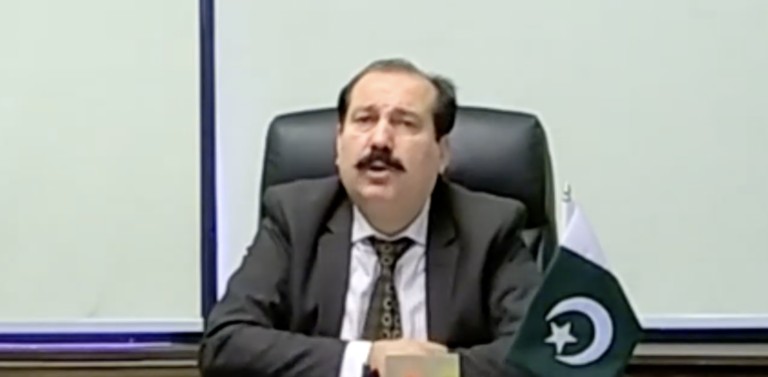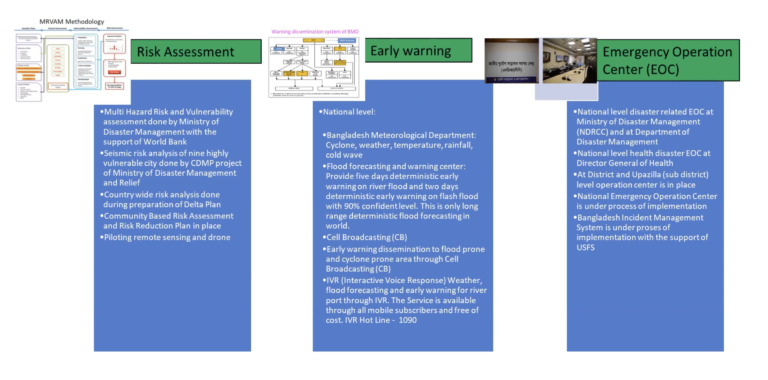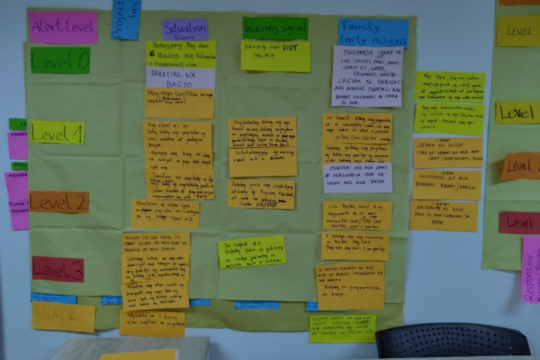The second meeting of the Regional Technical Working Group on the Nexus between Risk Analytics, Early Warning Systems, and Emergency Operations Centers (RTWG- RA, EWS, EOC) took place on 9 June 2021. There were 34 participants at the meeting which included the nominees from the Asian Preparedness Partnership (APP) countries, the APP program team, and participants from Bangladesh through the APP+ approach. The objective of the meeting included a survey with the members for a consensus on future activities, and sharing good practices through presentations from country representatives. It also centered on discussions regarding the development of a repository of case studies or good practices, proposed capacity building activities, and highlighting the existing standard operating procedures (SOPs) and guidelines on EOCs, EWS, and RA in the APP countries.
Mr. Sajid Naeem, Senior Country Program Manager of Asian Disaster Preparedness Center (ADPC) Pakistan, moderated the meeting. Ms. Shalini Kanwar, Program Lead of APP, welcomed all of the participants on behalf of the APP Secretariat. She reflected on the first meeting and the objectives of the group as it goes forward. Ms. Kanwar also introduced the Bangladesh team and recognized the value of their experiences regarding the nexus. Mr. Naeem then introduced Mr. Idress Mahsud, a National Disaster Management Authority Pakistan member, who chaired the meeting.

Mr. Mahsud indicated that the working group presented a unique scope for exchanging experiences and views as well as being informed about regional activities, good practices for inclusion, and future planning. He gave a presentation on the nexus with a practice that was being implemented in national urban settings. Mr. Mahsud elaborated on the hazard profile, disaster risk management (DRM) systems, early warning mechanisms, best practices, and the success of the project. The presentation highlighted the importance of technology-based early warning forecasting systems, the need to coordinate and engage all authorities and departments, and implementing mock exercises, refreshers training, and SOPs. The results of the Google survey were presented by Mr. Naeem. The poll revealed that the development of toolkits/guidelines, presenting knowledge during meetings, and linkage between thematic expert organizations should be prioritized.
The survey was followed by a presentation from Bangladesh. It focused on risk analysis, and early warning and emergency operation centers from National Emergency Operations Expert, Mr. Abdul Latif Khan. He provided an overview of the hazard risk and effects of climate change in Bangladesh, the actions that are being taken by the government and international actors, and early warning programs at the community level. Mr. Khan also detailed how geographical information systems (GIS), community risk, and other trainings are taking place at the local level, the development of a risk communications strategy, and capacity building for EOCs are being executed as the way forward.

As the meeting was drawing to a conclusion, Mr. Naeem expressed his gratitude to Mr. Idrees for chairing the meeting and Mr. Latif for his informative presentation. Ms. Kanwar wrapped up the session with an overview of the future working group meetings. She encouraged countries to share their experience and engage local actors such as non-governmental organizations (NGOs) and other relevant organizations to join future working group meetings. The next working group meeting will take place in August and be chaired by the Philippines.


